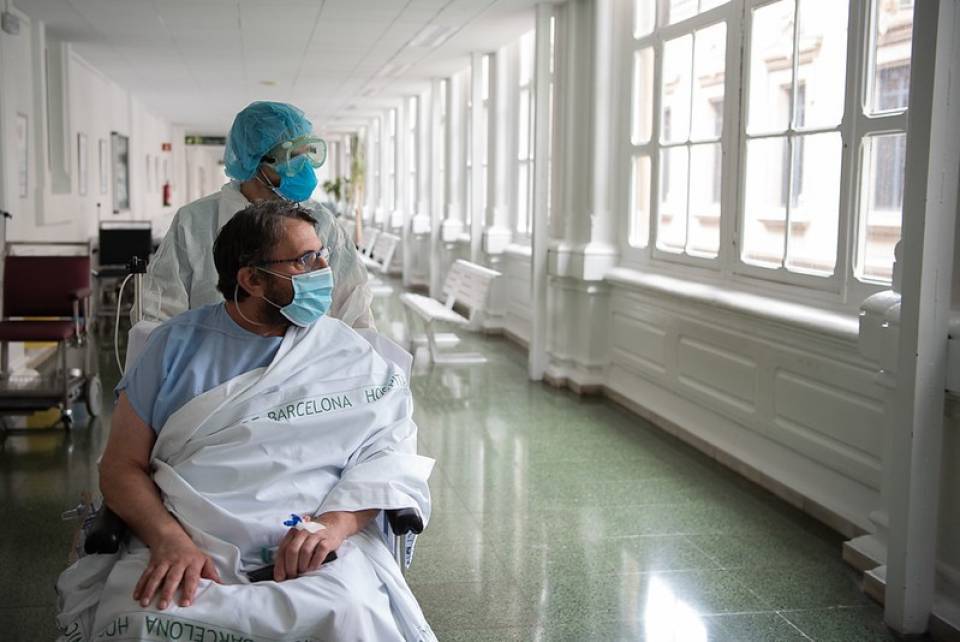Over the past few months, there has been great interest in studying the psychological impact of the COVID-19 pandemic in the general population and in healthcare professionals. This situation has particularly affected people with mental health problems, who are at greater risk of their condition worsening in situations of stress, as is the case of catching COVID-19 or being admitted to hospital.
Between the months of March and June 2020, a large number of people were admitted to Hospital Clínic due to complications arising from COVID-19. Many had previous mental health issues, or presented mental health problems during their hospital stay. Some of these problems require treatment with psychiatric drugs such as anxiolytics, antidepressants or antipsychotics, amongst others. The Psychiatry and Psychology Department and the liaison psychiatry team, which is in charge of care for people with mental health problems, had to respond to this unprecedented situation.
Experience over these months showed different difficulties in treating these people. One of the main problems was the interactions between psychiatric drugs and the drugs used to treat COVID-19, mainly because the combination of these drugs can increase the risk of cardiac arrhythmia. For this reason, many people’s access to COVID-19 treatments or treatments with psychiatric drugs was limited.
The psychiatric team published an article on this matter with recommendations based on the clinical and scientific evidence. The study considers three representative scenarios for people with mental health problems who are admitted to hospital due to COVID-19, and personalised treatment recommendations are made in each case.
Firstly, recommendations are made for people with acute confusional state or delirium. This syndrome normally affects elderly people and consists of disorientation and fluctuation in the state of consciousness, which can go from drowsiness to agitation. It is essential to investigate the organic cause of these symptoms, which can include fever. Furthermore, this syndrome must be treated. Olanzapine is recommended as the first-line treatment.
In the case of people diagnosed with a serious mental health disorder, such as schizophrenia, bipolar disorder or severe depressive disorder, amongst others, it is recommended that essential psychiatric drug treatment is continued to prevent a relapse of these serious conditions.
Finally, people with mild to moderate or temporary mental health disorders, such as anxiety and mild to moderate depression, are advised to identify and treat the specific symptoms with psychological treatment. If psychiatric drugs are required, low doses are recommended. Choose treatments with a low risk of interaction and avoid sudden suspension of treatment.
It should be highlighted that the risk of interaction between psychiatric drugs and COVID-19 treatments is not absolute, and each case should be considered on an individual basis. Many recommendations in clinical guidelines are of a qualitative nature and do not provide information on the risk of interaction according to the doses used. For this reason, it is necessary to treat each case in a personalised way and consider various clinical criteria. It is important to not exclude patients who take psychiatric drugs from the possibility of receiving a specific treatment for COVID-19 by default. However, continuing the treatment with psychiatric drugs and assessing the possibility of reducing the dose if there is a high risk of interaction is recommended.
An electrocardiogram should always be carried out beforehand, as well as an evaluation if adverse effects occur with the combination of treatments. If a new treatment has to be initiated with psychiatric drugs combined with drugs for COVID-19, the increase in the dose administered must be progressive, following the same principle: electrocardiogram monitoring and evaluation of the adverse effects.
Although the treatment protocols for COVID-19 have changed a lot since these recommendations were published in June 2020, the need to personalise treatment and consider all the patient’s circumstances are procedures that apply to a wide variety of complex situations faced on a daily basis as part of hospital care.
Authors: Dr Gerard Anmella, Néstor Arbelo, Mireia Primé, Luis Pintor and Dr Eduard Vieta, Psychiatry and Psychology Department, Hospital Clínic de Barcelona.




